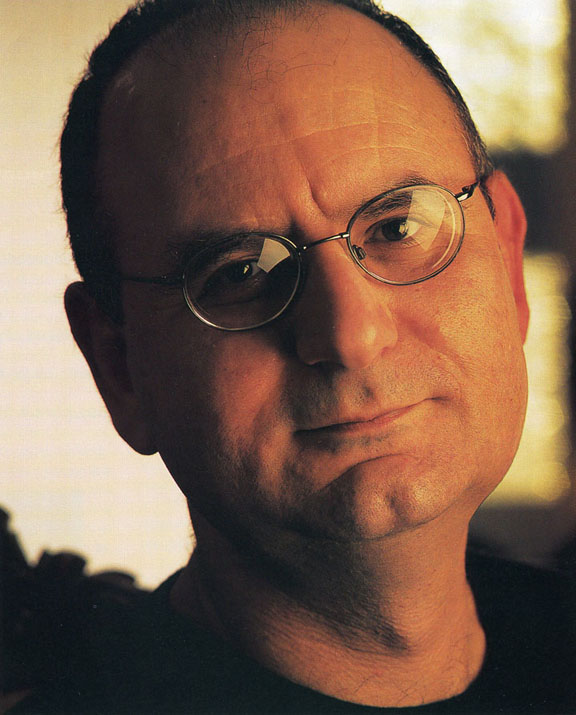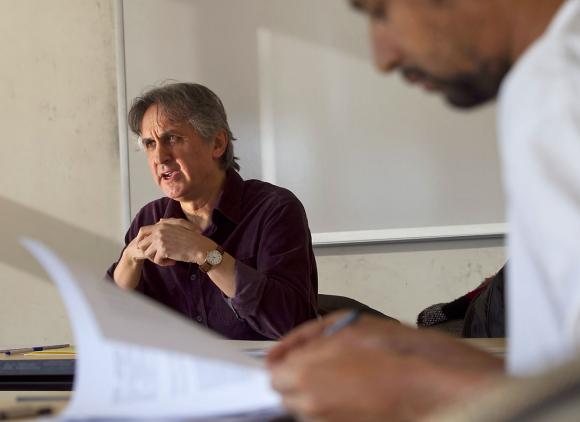Just more than a year ago, when 26-year-old fruit and vegetable seller Mohamed Bouazizi set himself afire in Tunisia, no one could have predicted what would follow. That act of protest triggered massive demonstrations in his home country, and revolts against oppressive rule in Egypt, Yemen, Libya, and Syria soon followed. Bouazizi's act became a catalyst for what is now called the Arab Spring.
The political upheavals in the last year did more than usher the Middle East into a state of transition. The Arab Spring also brought a reevaluation of how scholars study, teach, and interact with these unsettled political landscapes. At Brown, that is happening within the Middle East Studies Program (MES). With the arrival of distinguished new scholars and the launch of innovative projects, the University is strengthening contemporary, modern studies of the Middle East and Islam.
“We’ve always been extremely strong in the study of the ancient Middle East and now we’re building up a focus on the contemporary,” said Melani Cammett, associate professor of political science and director of MES. “There's a great demand for rigorous policy-relevant work that relates to the Middle East. There’s a lot of thirst for it among students, as well as in the world, and Brown is positioning itself well to develop strengths there.”

A transformation
This summer, social historian Beshara Doumani, an acclaimed scholar of the Middle East, will join the Brown faculty as the Joukowsky Family Distinguished Professor of Modern Middle East History and begin directing the MES program. Currently a professor in the Department of History at the University of California–Berkeley, Doumani specializes in Middle Eastern history during the Ottoman period. He will also serve as a faculty fellow at the Watson Institute for International Studies and teach at the Cogut Center for the Humanities.
The spring semester also marks the arrival of Iranian sociologist Asef Bayat, a leading scholar of social movements and democracy in the Muslim world, who is the inaugural Aga Khan Visiting Professor of Islamic Humanities. The former academic director of the International Institute for the Study of Islam in the Modern World (ISIM) in the Netherlands, Bayat has written two recent books — Life as Politics: How Ordinary People Change the Middle East (Stanford, 2010) and Making Islam Democratic: Social Movements and the Post-Islamist Turn (Stanford, 2007). He is currently teaching a class on religion and politics, with a focus on Islam.
Vazira Zamindar, associate professor of history, called Bayat’s presence on campus both timely and profound. “His work at ISIM was extremely important for debates on democracy in the Muslim world. But now they are integral to understanding the region in considerable flux, for that understanding can shape us and our political engagement with our own societies,” she said.
The arrival of Bayat and Doumani comes just months after a $2-million gift to support Brown’s MES programming, faculty and student travel, conferences, visitors, and more. This year the University also hired two junior faculty members with expertise in modern Arabic comparative literature and welcomed three visiting professors specializing in the study of Iranian history, culture and society, funded by a grant from the Persian community foundation PARSA. Additionally this semester, Lebanese political theorist Elizabeth Suzanne Kassab is visiting as part of the Brown in the World/The World at Brown grant funded by the Andrew W. Mellon Foundation. Together, Cammett says the scholars join an energetic, critical mass of nearly 40 MES faculty members and add to the program’s existing and growing strengths.
“These are transformational types of hires and gifts ...things that can make a huge impact at a place like Brown,” said Matthew Gutmann, vice president for international affairs.
Revolutions and Scholarship
Given Bayat’s scholarly expertise, he is helping to organize a conference this April, titled “Arab Revolutions and Scholarship.” Funded by the Carnegie Corporation, critical scholars will convene at Brown to discuss the relationships between the Arab political upheavals, how they have studied the Middle East until now, and how to think about scholarship going forward.
“Why did no one see [the Arab Spring] coming?” asked Bayat. “We need to re-evaluate our perspectives. We’ve been looking at this region for decades, but none of us could see what was happening or saw this coming.”
Cammett added that the conference intends to be a significant research agenda-setting event. “It’s important because of the hundreds of millions of citizens there,” she said. “It’s a hot flash point in the world and until we address the deep political, social, and economic problems in the region, there will always be tension there.”
Cammett and others in MES are pursuing work on questions of human security in region. The program launched the “Human Security in the Middle East” seminar series in 2010, as well as a new research cluster at the Watson Institute on human security in the Middle East and North Africa.
“I’m convinced this is a way to distinguish ourselves,” Cammett said. “Existing research out there is about political regimes and Islamic movements and not so much about questions of political economy. These are the questions that matter to everyday people in the region. It is innovative, important, and where research needs to go.”
The future
Cammett and others have high hopes for Doumani’s arrival and leadership as the MES program strengthens its contemporary focus. “He’s very attuned to what’s going on at Brown and seems focused on working with everyone to build something that’s greater than the sum of its parts ... and I think he has a lot to work with,” she said.
Doumani already has a vision for Brown’s program. Instead of trying to offer a comprehensive program in Middle East studies, he wants to create a robust niche that is consistent with Brown’s values and scholarly approaches.
“I believe Brown is well positioned to seize this moment and to play an important role in shaping new modes of knowledge production and consumption about the Middle East,” said Doumani. “Brown’s small size and its densely inter-connected faculty that takes pride in crossing boundaries give it the kind of intellectual dynamism and agility that few institutions of its stature can match.”

